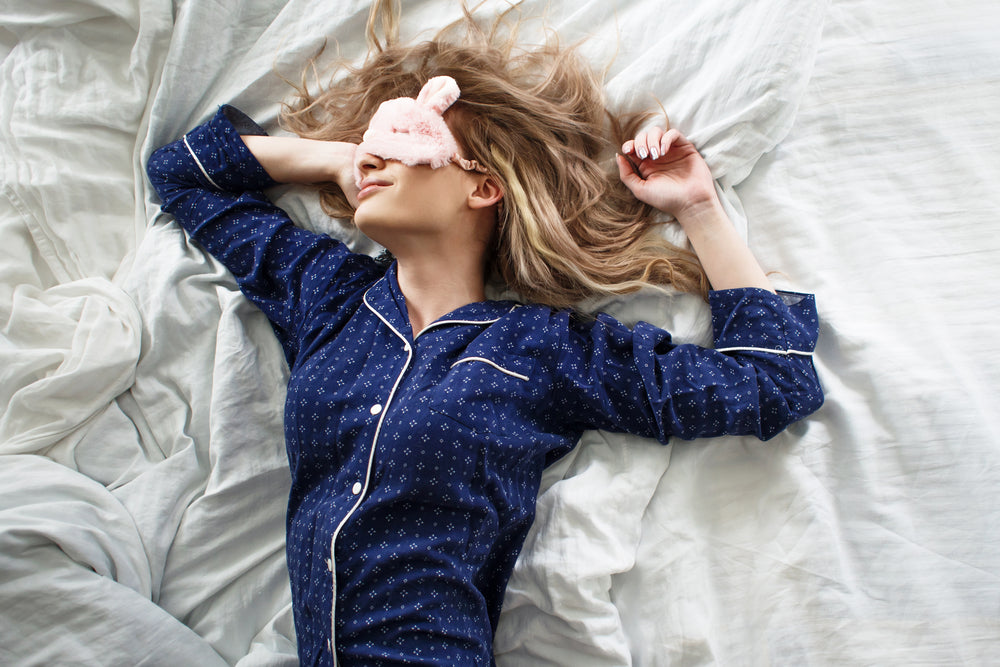Free U.S. Shipping On Orders Over $150

Why Women Need More Sleep Than Men (And How To Get it)
Posted on
According to the (limited) research we have currently, it seems that women sleep slightly longer than men. On average, women on average sleep anywhere between 6 and 24 minutes longer. A few studies have also shown that women fall asleep faster and spend more time in deep sleep.
In this post, we discuss why women need more sleep than men and how to ensure you are getting adequate sleep.
Why Women Probably Need More Sleep than Men
Regardless of gender differences in amount of sleep, experts say that most women should probably be getting more shut-eye than men. A combination of cultural factors, body processes and hormonal imbalances leaves a lot of women sleep-deprived. Getting extra time in bed can improve physical and mental health.
Here are some reasons experts say women should be getting more sleep.
1. Women Tend to Be More Sleep Deprived
For a number of reasons, including sleep disorders, child care, chronic pain and hormonal imbalances, women generally tend to be more sleep deprived than men.
Some experts think that’s why women take more daytime naps than men. They are compensating for the lack of adequate sleep at night. The problem with naps is that they can make it harder to sleep well at night, further perpetuating the cycle of sleep deprivation.
Even if, as a woman, you get the recommended 8 hours of sleep, you may still find yourself feeling tired and sleepy during the day. If you experience this, you probably need a bit more than 8 hours of sleep.
2. Women Are More Likely to Suffer from Insomnia
Women are at a higher risk of various sleep disorders, with the most common one being insomnia. This often leads to women waking up later as they try to catch up on lost sleep. It can also lead to daytime sleepiness.
There are several reasons why insomnia is more prevalent in women. A common one is hormonal fluctuations. Many women will have trouble sleeping during certain times of their menstrual cycle. Hormonal changes during pregnancy and menopause can also cause insomnia.
Mental health conditions like depression and anxiety are also more prevalent in women. And these can lead to or worsen insomnia.
Women are also more likely to experience chronic pain, particularly as they grow older. Pain can keep you up at night, leading to insomnia and sleep deprivation.
3. Women Need More Sleep During Certain Periods
Women go through a lot of body changes. During some of these periods, the body simply needs more sleep than usual.
For instance, many women need more sleep around their period. That’s likely because PMS interferes with sleep, so they need to sleep longer to feel rested.
Pregnancy is another period when women need more sleep. There are, of course, all the hormonal changes that can lead to sleep deprivation. There is also the toll that pregnancy takes on the body. It makes you more tired, so you need to sleep longer to recover.
Menopause also comes with its own complications, mostly related to hormones. You can learn more about sleep problems during menopause in this post. Hot flashes and night sweats are some of the biggest problems women face, leading to insomnia, sleep disruption and poor sleep overall.
4. Gender-based Responsibilities
While cultural expectations have changed a lot in the last few decades, women still handle a majority of domestic roles including childcare, laundry, cooking and other tasks.
Simply put, women get more tired than men and therefore need to get more rest at night.
Simple Ways To Get More Sleep
Getting adequate sleep can be challenging when you are already dealing with issues like stress, anxiety, hormonal imbalances and chronic pain. But there are a few simple steps you can take to greatly improve, not only how much sleep you get but the quality of your sleep as well.
- Create a comfortable sleeping environment. Keep your bedroom cool and dark, reduce noise, and reduce clutter. A cozy and relaxing bedroom can reduce insomnia.
- Make your bed more comfortable. Invest in a good quality mattress, get breathable sheets like the Hercleon Jax Sheets (great for hot flashes and night sweats) and, if you get really hot, consider getting a bed cooling system.
- Have a regular sleep routine where you sleep and wake up at the same time. That means eating your dinner around the same time everyday, having a relaxing bedtime routine and putting away devices at least an hour before sleep.
- During the day, spend time outdoors and find time to exercise. This boosts melatonin production at night and makes it easier to fall asleep.
Quick links
Contact
6063 Hudson Road #160
Woodbury, MN 55125
Yo@hercLeon.com
Leave a comment: